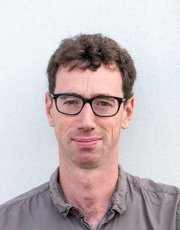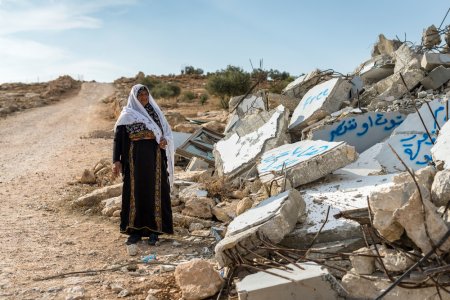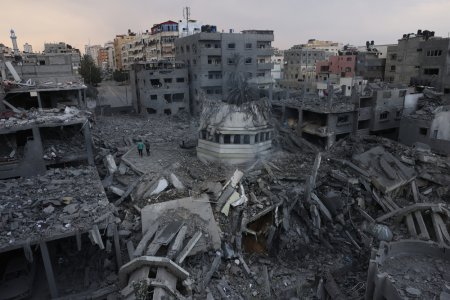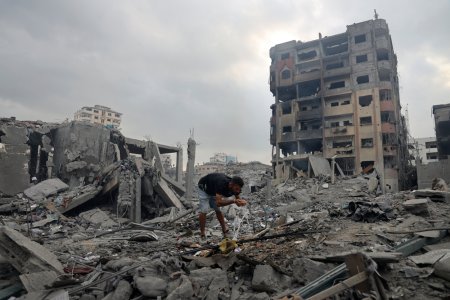
Gaza reading list 2, February - June 2024
Elba Rahmouni & Michaël Neuman
This reading list gathers articles and videos published between February and June 2024.
1. Bombing and the conduct of hostilities
The magazine +972 looks at the role of artificial intelligence in the conduct of war. Using "Lavender", an AI-based targeting system, the Israeli army has designated (with little human oversight) tens of thousands of Gazans as suspects. In this article, we learn that the system "Where's Daddy?" tracked these targets and notified the army that they were entering their family homes so that these homes could be bombed. This practice coincides with the army's easing of restrictions on the number of civilians that can be killed in the bombing of a target: 15 to 20 civilians for a supposed low-ranking Hamasagent, and up to 100 civilians for a high-ranking official.
‘Lavender’: The AI machine directing Israel’s bombing spree in Gaza, Yuval Abraham, April 3, 2024
Since October 7, more than 100 journalists have been killed. For four months, the international journalist consortium Forbidden Stories has investigated the circumstances surrounding these deaths, as well as all the journalists who have been targeted, threatened or injured in the West Bank and Gaza. These investigations reveal that many of them were targeted while identifiable as journalists.
« Gaza Project » : comment Forbidden Stories a enquêté sur la mort de plus de 100 journalistes à Gaza, Forbidden Stories, June 25, 2024
2. Detention and torture
The existence of Israeli torture centers has recently been revealed, in particular the site of Sde Teiman, a military base in the South of the country that has become a detention center for Palestinians from Gaza. By the end of May, around 4,000 Gazan detainees had spent up to three months at the base. At least 1,200 individuals were eventually recognized as civilians and sent back to Gaza, without being charged, apologized to, or compensated.
Inside the Base Where Israel Has Detained Thousands of Gazans, The New York Times, June 6, 2024
3. Investigating violence against women
In this article, Azadeh Moaveni examines the sexual violence committed against Israeli and Palestinian women in societies at war. She shows how difficult it is to investigate the violence committed on October 7, especially when avenging acts of sexual violence becomes a pretext for continuing the war. While it has been possible to establish a few cases, it cannot be demonstrated that this violence was part of Hamas's strategy. The author also explains that sexual violence against Palestinian women, which has hovered over the Arab-Israeli conflict since its inception, has been largely ignored.
What They Did to Our Women, Azadeh Moaveni, May 9, 2024
4. Reshaping Gaza
If the war is taking place in the present, Israel is preparing for what comes next. This article from +972 Magazine, written by Ruwaida Kamal Amer, a Palestinian journalist from Khan Younis, describes how Israel is reshaping Gaza by expanding its buffer zone and erecting military bases within the Strip. While Israel portrays these transformations as necessary for the conduct of the war, Palestinians fear the permanent loss of their homes and agricultural land. This article was translated and published in French by Médiapart.
Cementing its military footprint, Israel is transforming Gaza’s geography, +972 Magazine, 21 may, 2024
Comment Israël redessine la bande de Gaza, Médiapart, June 1, 2024
5. War crimes, genocide, ecocide
Eyal Weizman, a British Israeli architect, founder and director of Forensic Architecture, accuses Israel of using humanitarian principles as yet another weapon against the Palestinians in Gaza. A new report from Forensic Architecture claims that what Israel calls humanitarian evacuations in Gaza are in fact equivalent to the forced displacement of Palestinians, which constitutes a war crime. "We cannot see this as anything other than part of a genocidal campaign," says Eyal Weizman.
“Humanitarian Violence” in Gaza: Architect Eyal Weizman on Mapping Israel’s “Genocidal Campaign”, Democracy Now!, March 21, 2024
In this investigation, Forensic Architecture reveals the systematic targeting of orchards and greenhouses by Israeli forces since October 2023. This destruction is a widespread and deliberate act of ecocide that has exacerbated the catastrophic famine underway in Gaza, and is part of a wider pattern of deliberately depriving Palestinians of resources essential to their survival.
‘No Traces of life’: Israel’s ecocide in Gaza 2023-2024, Forensic Architecture, March 29, 2024
In this article, Eyal Weizman puts into perspective the contemporary episode in the history of the two genocides committed by Germany, the genocide of European Jews and that of the Herero and Namas in present-day Namibia between 1904 and 1908. In doing so, he invites us to examine the continuities that might "bring the history of the Holocaust closer to that of colonialism and slavery, thus making it possible to recognize the historical solidarity between blacks and Jews, as well as between anti-Zionist Jews and Palestinians".
Three Genocides, London Review of Books, April 12, 2024
For doctoral student in anthropology Samirah Jarrar, Israeli control over the Palestinians of Gaza is exercised both in death and in life: bodies damaged, confiscated, graves turned over, etc. are part of the continuum of extreme deprivation imposed on the people of Gaza. These practices reveal a racist division and hierarchization of lives and bodies.
Living and dying in Gaza under Israel's necropolitics, The New Arab, March 25, 2024
Vivre et mourir à Gaza sous le régime nécropolitique d'Israël, Yaani, June 15, 2024
6. West Bank
This article in the New York Times tells how a radical ideology has moved from the margins to the heart of Israeli political power. Authors Ronen Bergman and Mark Mazzetti explain the development of a discriminatory judicial system around Jewish settlements in Gaza and the West Bank. They show that extremists targeted not only Palestinians, but also Israeli officials working for peace.
The Unpunished: How Extremists Took Over Israel, The New York Times, May 16, 2024
7. UNRWA
In this op-ed, Philippe Lazzarini, Commissioner-General of the United Nations Relief and Works Agency for Palestine Refugees in the Near East (UNRWA), denounces a blatant disregard for the UN mission, in particular outrageous attacks on UNRWA employees, facilities and operations.
UNRWA : Arrêtez la violente campagne d’Israël contre nous, AURDIP, June 9, 2024
UNRWA: Stop Israel’s Violent Campaign Against Us, AURDIP, June 2, 2024
8. ICC
On May 20, 2024, the Chief Prosecutor of the International Criminal Court (ICC), Karim Khan, announced that his office had requested the issuance of arrest warrants for Israeli Prime Minister Benjamin Netanyahu, Israeli Defense Minister Yoav Gallant, and Hamas leaders Yahya Sinwar, Ismail Haniyeh and Mohammed Diab Ibrahim al-Masri. A few days later, a joint investigation (+972 Magazine, Local Call, The Guardian) revealed that senior Israeli government and security officials had overseen a covert surveillance operation lasting almost ten years and targeting senior ICC officials and Palestinian human rights defenders to derail a war crimes investigation.
Surveillance and interference: Israel’s covert war on the ICC exposed,+972 Magazine, May 28 2024
9. Recognition of the State of Palestine
In this article published in The Conversation, Insaf Rezagui analyzes the recognition of the State of Palestine by several countries, including Spain, Ireland and Norway. While recognition of a state does not equate to its existence, this declaration has several objectives, such as denouncing the continuation of the war, putting pressure on Israel and reiterating commitment to the two-state solution.
Des reconnaissances de l’État de Palestine qui isolent encore plus Israël, The Conversation, June 12, 2014
10. Israel and the United States
For Adam Shatz, U.S. editor of the London Review of Books, what we are witnessing in Gaza is the transformation of Israel from a state that once served as a refuge for survivors of the death camps into a nation guilty of genocide. In this article, the author analyzes Israel's entrenchment in its mortifying policy, US support for Israel, student mobilizations in the US and around the world, and the issue of anti-Semitism.
Israel’s Descent, London Review of Books, June 20, 2024
Israël dans l’abîme de Gaza, Orient XXI, June 24, 2024
11. Egypt's position
These two articles, published in Médiapart and the New York Times, shed light on Egypt's policy of appeasement towards the Israeli state. Despite the red lines proclaimed by Egypt's leaders, their reactions are increasingly weak. The extremely worrying economic and social situation of the country, which cannot afford to lose American aid, could explain this situation. In this context, demonstrations in solidarity with Gaza are being suppressed.
Egypt Faces Hard Choices After Israeli Seizure of Gaza’s Southern Border, The New York Times, May 30, 2024
L’inconfortable danse de l’Égypte face à la guerre à Gaza, Médiapart, May 30, 2024
12. What war means for Israeli society
Dehumanizing language, promises of annihilation by military and political leaders, widespread support for policies that have brought devastation and hunger to Gaza, selfies of Israeli soldiers in front of the destruction: Megan K.Stack analyzes the morbid descent of Israeli society. Today, few voices criticize the occupation of Palestinian land and favor negotiations and peace.
The View Within Israel Turns Bleak, The New York Times, May 16, 2024
In an interview, Joseph Confavreux asks novelist Yishaï Sarid about his understanding of Israeli society, which is marked by remembrance, violence and extreme right-wing ideas. For him, Israel's existence cannot be built on endless revenge.
Yishaï Sarid : « L’existence d’Israël ne peut être bâtie sur une vengeance sans fin », Médiapart, June 1, 2024
13. Palestinian voices
New York-based independent publisher OR Books has announced that it has acquired the rights for the posthumous publication of Palestinian poet and English literature professor Refaat Alareer. He died in an Israeli bombardment on December 6, 2023, along with 7 other members of his family, leaving a terrible poem - If I Must Die - that has gone viral.
If I Must Die : un recueil posthume du poète palestinien Refaat Alareer, Les univers du livre Actualité, April 26, 2024
In this opinion piece Oğuz Kaan Salıcı asserts, "Marwan Barghouti is a key figure capable of breaking the political deadlock in Palestine. [...] His case requires our attention now more than ever." A prominent leader in the first and second Intifadas, Barghouti has been imprisoned in Israel for 22 years.
Marwan Barghouti's imprisonment is denying Palestinians a path to unity, Middle East Eye, June 18, 2024
Since February 28, 2024, Palestinian journalist Rami Abou Jamous has been writing his diary for Orient XXI. In October, he was forced to leave his apartment in Gaza City with his wife and son Walid under pressure from the Israeli army. Now sheltered in Rafah, Rami and his family have had to embark on the path of internal exile, trapped like so many families in this overcrowded enclave. On June 25, 2024, he talks about the difficulties of getting around, the poverty of the Gazans and their criticism of Hamas.
JOURNAL DE BORD DE GAZA 39 « Cette guerre a fait ressortir ce qu’il y a de pire chez les gens », Orient XXI, June 27, 2024
14. The conflict and the academic world
In this article, Joseph Massad, Professor of Modern Arab Politics and Intellectual History at Columbia University in New York, analyzes the repression faced by the academic world regarding studies on Palestine and Israel. He also explains how, since the 1980s, there has been a widening gap between academic knowledge on the Middle East and the mainstream media in major Western countries.
Why academic scholarship on Israel and Palestine threatens western elites, Middle East Eye, June 18, 2024
Pourquoi les études universitaires sur Israël et la Palestine menacent les élites occidentales, Charleroi pour la Palestine, June 24, 2024
15. The conflict and humanitarianism
Some have seized on the conflict to question its place in contemporary humanitarianism. According to historian Joël Glasman, the situation in Gaza marks a tipping point for humanitarian organizations disavowed by Western liberal democracies. Michaël Neuman (director of studies at Crash) responds to Joël Glasman in another text on the relationship between humanitarianism and liberal democracies: rather than a tipping point, Gaza is a paroxysm.
Après Gaza, l’humanitarisme sans libéralisme ?, AOC, March 26, 2024
Humanitaire et démocraties libérales, AOC, April 10, 2024
In this article by Weronika Zarachowicz, humanitarians Raphaël Pitti, Jean-François Corty and Rony Brauman describe how, over the past six months in Gaza, the work of NGOs has been severely hampered in a context where violations of international humanitarian law are reaching a climax. Historian Joël Glasman and jurist and political scientist Philippe Ryfman analyze the process of weakening the humanitarian sector that began at the beginning of the 21st century.
Gaza, la fin de l’idéal humanitaire ?, Télérama, May 10, 2024
16. Perspectives
Finally, we close this selection with a series of contributions to put the contemporary episode into perspective.
Rashid Khalidi is an American historian of Palestinian origin, specializing in Middle Eastern history. In this video interview, he looks back at his book The Hundred Years' War on Palestine: A History of Settler Colonialism and Resistance, 1917-2017, in which he describes the Zionist claim on Palestine over the century 1917-2017 as late colonialism and an instrument of British and then American imperialism, focusing on a series of six major episodes that the author characterizes as "declarations of war" on the Palestinian people. In an article published in The Guardian, Rashid Khalidi situates the current war, marked by its terrible intensity, within the broader history of the Israeli-Palestinian conflict.
The Israel & Palestine Conflict Explained w/ Rashid Khalidi, Tom Delgado, April 7, 2024
‘A new abyss’: Gaza and the hundred years’ war on Palestine, The Guardian, April 11, 2024
In this long video interview, Alain Gresh, former editor-in-chief of Le Monde diplomatique and founder of the online journals Orient XXI and Afrique XXI, and Rony Brauman, former president of MSF and current director of studies at Crash, decipher the history and present of the Israeli-Palestinian conflict.
Israël/Palestine : fuir sous les bombes ? Alain Gresh et Rony Brauman, Thinkerview, May 14, 2024
Dominique Eddé is a Lebanese novelist, essayist, translator and publisher. In this episode, she reflects on the contribution of the American-Palestinian intellectual Edward Saïd to her life, to thinking and to the Israeli-Palestinian conflict. She also talks about the difficulty of holding the ridgeline that has always been hers to overcome ignorance and combat violence.
Dominique Eddé, femme de lumière, Épisode 4/5 : Un homme, Edward Saïd, France culture, June 13, 2024
New York Times columnist Lydia Polgreen draws on Frantz Fanon to discuss the ability of the parties to renounce maximalist and violent logics.
Restoring the Past Won’t Liberate Palestine, The New York Times, February 18, 2024
To cite this content :
Elba Rahmouni, Michaël Neuman, “Gaza reading list 2, February - June 2024”, 1 juillet 2024, URL : https://msf-crash.org/en/war-and-humanitarianism/gaza-reading-list-2-february-june-2024
If you would like to comment on this article, you can find us on social media or contact us here:
Contribute




